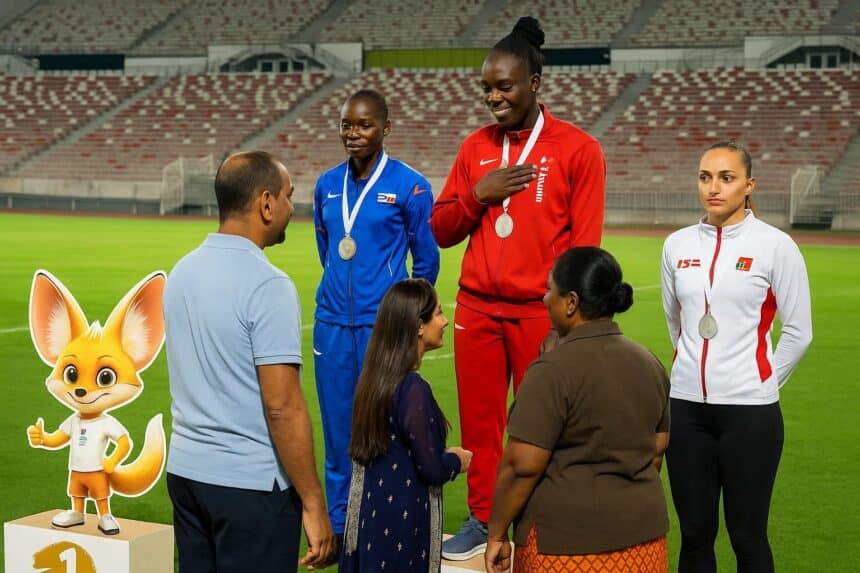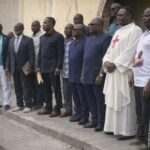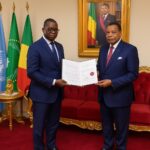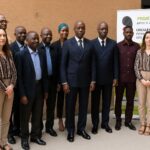Modest Delegation, Outsized Impact
Congo’s six-member delegation to the inaugural African School Sport Games in Algeria returned with four medals, confounding observers who feared the country’s limited resources would hinder performance. Their haul, highlighted by Gladise Boukama Ndoulou’s long-jump gold, instantly captured national headlines and regional attention.
- Modest Delegation, Outsized Impact
- Soft Power and Youth Diplomacy
- Financing Grassroots Sport
- Government Strategy Begins to Take Shape
- Talent Identification and Education Synergies
- Partners and Regional Cooperation
- Measuring Progress through Future Benchmarks
- Long-Term Outlook for Congo’s Sporting Diplomacy
The Games, held from 26 July to 5 August 2025 under African Union patronage, welcomed delegations from fifty nations. Congo’s small presence nonetheless finished above several bigger contingents in the final medal table issued by the African School Sport Federation.
Soft Power and Youth Diplomacy
Beyond athletic achievement, officials in Brazzaville viewed the competition as an exercise in public diplomacy. A senior diplomat described the young team as “mobile ambassadors whose discipline projects a positive national image throughout the continent” during a debrief arranged by the Ministry of Foreign Affairs.
Regional media echoed that sentiment, noting that school sport outcomes have become a soft-power metric similar to music or cinema exports (Jeune Afrique, 2025). Such recognition, analysts argue, can translate into political capital during African Union negotiations on education, youth, and cultural cooperation.
Financing Grassroots Sport
Yet medals alone do not guarantee systemic progress. Clubs, leagues, and federations cite budgetary pressure as a persistent constraint, with several reporting logistical bottlenecks in pre-departure training camps (Congolese Olympic Committee communiqué, May 2025). Private sponsorship remains limited as companies prioritise football, the nation’s traditional crowd-puller.
Government appropriation for high-performance sport currently stands at roughly 0.5 percent of the national budget, according to Ministry of Finance figures. While comparable to peers in Central Africa, experts suggest that predictable multi-year disbursements, rather than absolute increases, would allow federations to draft programmes with measurable outcomes.
Government Strategy Begins to Take Shape
Policy momentum appears to be gathering. President Denis Sassou Nguesso endorsed a forthcoming National Youth and Sport Strategy 2026-2030 during a cabinet meeting in March, emphasising “holistic training that dovetails athletic preparation with academic excellence and civic responsibility”, according to the official communiqué.
Drafts circulating among stakeholders outline incentive schemes for school-based talent identification, tax credits for firms funding equipment, and new bilateral exchange windows with Morocco and Rwanda, two countries praised for modern high-performance centres. Parliament is expected to debate the enabling legislation before the end of the year.
Talent Identification and Education Synergies
Education experts regard schools as the primary feeder system for elite sport. The Ministry of Primary and Secondary Education, already rolling out the ‘One Child, One Activity’ initiative with UNICEF support, plans to include athletics modules in the revised curriculum slated for September 2026.
Coaches argue that early exposure to biomechanics and nutrition theory can prevent injuries and prolong careers. Congolese Sports Medicine Association president Dr Claire Kiala believes integrating health checks into school programmes will “optimize the genetic potential we have observed in sprint and jump events across the Sangha basin”.
Partners and Regional Cooperation
International partners have taken note. The French Development Agency is evaluating a €10 million concessional loan for refurbishing track facilities in Brazzaville and Pointe-Noire, while the African Development Bank has earmarked grants under its Jobs for Youth in Africa programme, officials from both institutions confirmed this month.
Such external financing aligns with the government’s broader National Development Plan 2022-2026, which positions sport as a contributor to tourism, urban renewal, and youth employment. Economists at the University of Kintele estimate that every CFA franc invested in community sport yields 1.8 francs in ancillary economic activity.
Measuring Progress through Future Benchmarks
Measurement, however, will be essential. The National Institute of Statistics is setting up a dedicated dashboard to track medal progression, gender parity, and athlete retention rates. A baseline survey, scheduled for January 2026, will provide the first systematic snapshot since the 2015 All-Africa Games cycle.
Civil-society monitors, including the think-tank Observatoire du Développement Durable, have been invited to audit the indicators. Their participation, officials believe, will reinforce transparency and reassure international donors that allocations reach intended beneficiaries, a crucial consideration amid heightened global scrutiny on public expenditure efficiency.
Long-Term Outlook for Congo’s Sporting Diplomacy
Brazzaville’s diplomats see in sport a unifying narrative at a time when regional blocs are recalibrating influence. By nurturing competitive school programmes, Congo positions itself as a constructive actor within the Economic Community of Central African States, capable of hosting youth events that foster people-to-people connectivity.
Officials at ECCAS headquarters in Libreville confirm preliminary talks on rotating the 2027 School Sport Games to Congo, contingent on infrastructure upgrades. Such an award would dovetail with the government’s objective to elevate the country’s profile ahead of the 2029 Francophonie Summit bid.
The youthful exploits in Algeria therefore stand as both an inspiration and a policy catalyst. Sustaining momentum will require calibrated investment, inclusive governance, and continued diplomatic engagement—a triad that could transform sporting arenas into platforms of national resilience and continental partnership for years to come.
Athletes interviewed repeatedly voiced hope that the momentum endures.






















